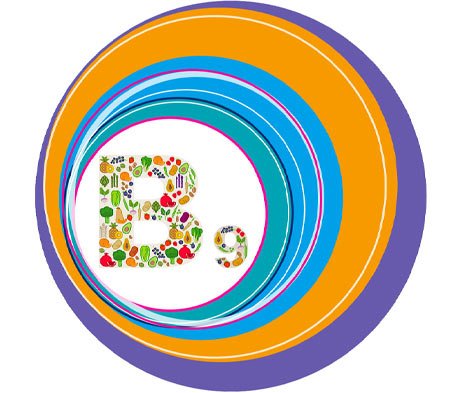
Folate (B9) deficiency
Folate, or Vitamin B9, is an essential vitamin that your body needs to produce new cells, repair any damage to the tissues in your body, and keep your nervous system healthy.
Described as the ‘big sister’ to B12, these vitamins work hand in hand to support the body’s immune function and prevent your nerves from sustaining damage.
This super nutrient is commonly rich in leafy vegetables, but can also be sourced from meat, eggs and dairy, broccoli and legumes.
Folate deficiency – Why is it a problem?
Folate deficiency plays a big role in depression, can lead to suicidal thoughts and pre menstrual moodiness and problems with sleep. When folate levels fall in combination with low B12, homocysteine levels can rise posing a serious problem to your health if not diagnosed and treated promptly. Homocysteine is a known risk factor for heart problems and other cardiovascular events.
Folate deficiency can arise from a dietary deficiency, a higher demand for folate during pregnancy or from the body struggling to fully absorb this nutrient (malabsorption) or from genetic methylation issues such as MTHFR. Many drugs are folate antagonists – so blocking the action of folate.
Testing for folate deficiency is usually carried out using a serum folate test which should be a fasting test. Sometimes RBC folate (red blood cell) is used instead.
Signs and symptoms of folate deficiency – you’ll see that many also overlap with B12 deficiency:
- Low energy and fatigue
- Weakness
- Mouth ulcers
- Visual problems – macular degeneration
- Pale skin
- Headaches
- Irritability
- Prematurely grey hair
- Shortness of breath
- Heart palpitations
- Memory, cognitive and mental health problems
- Anxiety and depression
- Weight loss
- Nausea
- Megaloblastic anaemia – abnormally large and dysfunctional red blood cells
- Frequent illness – poor immune response
- Infertility
- Increased risk of neural tube defects (NTDs) such as spina bifida and cleft-lip and palate in babies
- Insomnia
Who is at risk for folate deficiency?
Folate deficiency can affect anyone but there are groups of people who should try to make sure that they are gaining enough folate from their diet or are supplementing appropriately. These people are:
- Diabetics
- Pregnant women, or women who are trying to conceive
- Those who have liver disease
- Anyone who frequently takes laxatives or diuretics
- Alcoholics
- Those who need kidney dialysis
- Those taking methotrexate
How much folate do I need?...
We all have unique folate requirements to keep our bodies healthy and functioning as well as they possibly can. How much folate you’ll require will depend on your specific genetics, your general state of health, your lifestyle and your metabolism.
If you start taking vitamin B12 injections, it’s a really good idea to start supplementing with folate too. A low baseline reading for folate can indicate that your body will struggle to absorb any supplemented vitamin B12, so ensuring that your folate levels are at a good level before taking B12 is recommended. If you are taking anti-epileptic (seizure) drug you must talk to your doctor about starting folate supplements as these can block the effect of this medicine.
Isn’t folic acid the same thing as folate?...
No it isn’t. Folate is the naturally occurring form of vitamin B9 which is usually found in green, leafy vegetables. Folic acid is an oxidised synthetic version (meaning it doesn’t exist in nature) of vitamin B9 and is found in supplements and fortified foods.
The natural form of folate from leafy greens is usually absorbed by the body in the small intestine fairly easily. However, folic acid requires a specific enzyme, dihydrofolate, for proper absorption. There’s a low amount of this his enzyme in the liver meaning that it can be difficult for folic acid to be processed and used.
Supplementing with folic acid may pose a particular problem for women who are of a child-bearing age, who have been advised to supplement prior to conception or throughout their pregnancy. Some of these women, just like me, cannot metabolise folic acid properly and so the unused, unmetabolised folic acid can bind to folate receptors and can block metabolisation of natural folate. Those of us who need reduced bioavailable forms of folate owe our thanks to Pharmacist Martin Ulmann who has worked for over 40 years in the folate world.
Types of folate...
Having stated that not all people can tolerate folic acid, what are the alternatives..?
Methylfolate – (L-5-MTFH) This form is bioavailable and methylated. It is usually advised that this form should be started low and slow especially for anyone taking antidepressants or antipsychotics. Most of these supplements start at 400mcg.
Folinic acid – (sometimes called calcium folinate) This form is also bioavailable but is unmethylated so a good choice for those sensitive to methylated forms – (some people can experience jitteriness, nervousness or rapid heart beat when using methylfolate.) This form may be a better for you if you are taking drugs prescribed for poor mental health.
If I've helped please consider buying me a coffee/leaving a virtual tip.
Doing this helps me to offer this free website to you and others around the world.
Thank you, I really do appreciate it.
